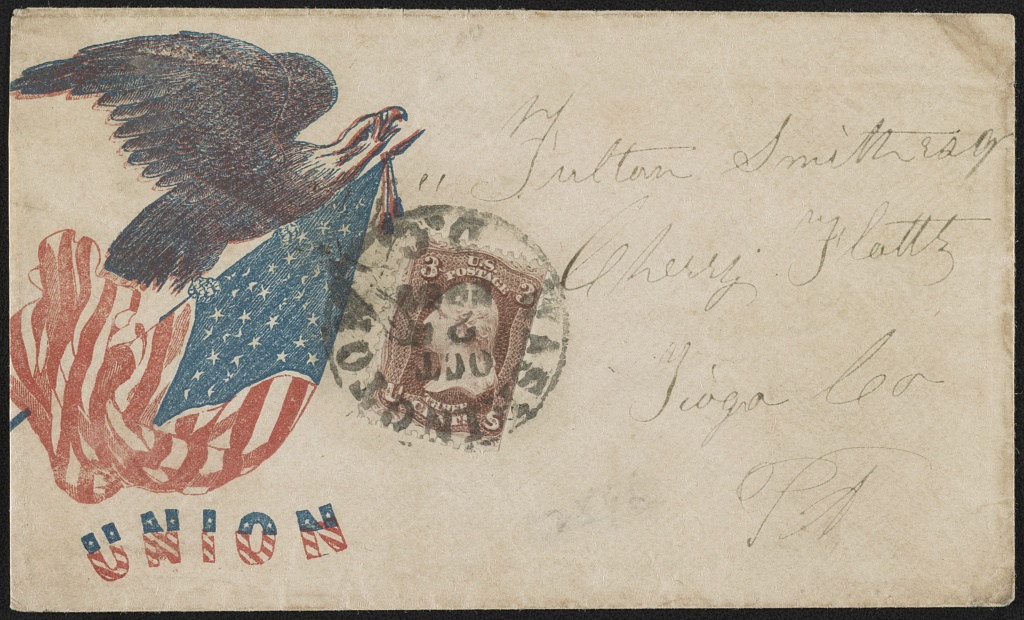Letters Home: Gracie Firgau Discusses Her Work on Our New Digital History Project
by Gracie Firgau | | Wednesday, November 1, 2023 - 13:14

Over the summer, I had the joy of working with the Nau Center for Civil War History at UVA on the Letters Home digital history project. The John L. Nau III Civil War History Collection, housed in UVA’s Special Collections Library, contains thousands of letters, diaries, and photographs from the Civil War era. The Letters Home project will make this material more accessible to scholars around the world. It will include transcriptions of the documents along with interactive maps and biographies of the soldiers and their families. For my internship, I read several hundred letters, researched soldiers’ lives using Ancestry.com, and entered relevant information into the project database. Through this project, I was able to add to my experience in the humanities. I am used to mathematical and scientific courses. I have grown up concentrating in these areas. However, over the course of this internship, I truly recognized the importance of learning about history and its people and what they have to offer me.
The aspect of this internship that stuck out the most to me was how relatable the individuals communicating through written letters were. While taking a couple of history classes in high school and college, I have seen history as something that just happened that I must know as an American citizen. The individuals turn into characters rather than real people with real stories, and the events—good and bad—turn into stories that have little to no effect on my empathy. However, getting to read these letters from the Civil War has truly changed my perspective. While I did not review many gruesome or fearful letters written in the midst of battle, I still got to see what war weariness and daily life were like on the home front and in battle. The soldiers seemed to live a monotonous life. They cherished their families back at home, and they were not afraid to express this in their letters. Those at home were also weary and couldn’t wait to receive news from their families and friends.
Reading these letters provided a human connection to the past. The 1860s was not just a simple timeline in our textbooks; these people were truly alive. One woman’s letters, for example, talked incessantly about her day, her many new illnesses, her family, and the drama of the town. Many times, it felt as if she spoke for three or four pages but came to no conclusion. She seemed to speak about a lot of nothing. After I finished reading her letters, however, I realized that this woman embodied what a lot of people today embody. She set the tone for normal, daily activities like gossip and feelings of loneliness. I felt a sense of comfort in the fact that we are not all that different. Everyone has needs now and still did back in the 1800s.
It was also extremely interesting to reflect upon what Civil War soldiers experienced in battle. One devoutly religious soldier, for example, described a phantom experience. This was the only letter that I came across that talked about ghosts and spirituality at the same time. Just as some individuals today believe in and document their sightings of what they believe are ghosts, some Civil War soldiers did the same. This helped me believe and understand that the human mind and the events that spark feelings within us have not changed over time.
As I worked on this project, I was struck by the importance of everyone throughout history. As you skim memorials of veterans lost, the names begin to jumble and disappear until you find the name of the individual important to you. This internship made me realize, however, how important one individual can be. I realized that we must document ourselves and leave this documentation behind for others. Simply leaving off an initial or last name in a letter can erase us forever. Everyone deserves to be remembered and recorded so that those in the future can continue to build lost connections. Everyone is important.
If I could do this internship over again, I would ensure that I took this understanding of individuality and timelines and apply it to each letter I documented. History deserves to be felt and understood on a personal level rather than through a textbook of required material. The Letters Home project has truly shifted my understanding of the human experience.
